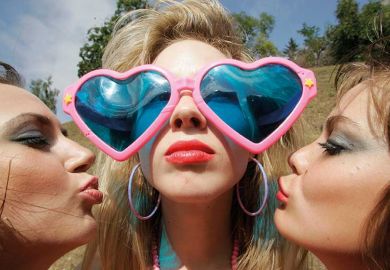Ciara Cremin’s premise is that masculinity is a disorder that affects each and every one of us – both men and women. Although this idea forms the basis of many feminist texts, what is much less familiar is the argument that this pervasive masculinity (practised by both males and females – think authoritarian female bosses) is inextricably tied to capitalism.
There can be no capitalism, claims Cremin, without a collective psyche that is sustained by everything masculine: “For capitalism to exist, a particular subject is required: one who is psychically mutilated in advance of their alienation as workers, consumers, caregivers and agents of the state.”
The Future Is Feminine consists of six chapters. The first describes “the general sickness” rife in patriarchy that needs fixing. Cremin advocates a new feminine praxis. A healthy society would dismiss traditional masculine aims and ambitions such as aggression and militarism so as to embrace those qualities formerly associated just with women (caring, empathising, loving and so on). These qualities would then become the new norm shared by all.
The second chapter describes male entitlement and the pressures on little boys and later men to live up to masculine ideals. Here Cremin seems to draw most closely on Pierre Bourdieu’s idea that masculine domination is an example of symbolic violence that can be deceptively gentle and invisible yet still pervasively exercised through the everyday practices of our social life. My favourite quote in the book comes from Bourdieu: “Male privilege” is a trap that “has its negative side in the permanent tension and contention, sometimes verging on the absurd, imposed on everyman to exert his manliness in all circumstances”.
Chapter three, which describes a “Toxicity Index”, is perhaps the most controversial. This provides a scale from the most endearing subtle, open and flexible forms of masculinity (think Barack Obama) to the brittle and sociopathic ones (think Donald Trump). Yet all are seen as damaging in different ways.
Chapter four traces the disorder of capitalism back to early colonisation and witch-hunts. The interconnected “vectors of androcentrism” Cremin refers to are: wage labour, consuming labour, repressive labour (eg policing) and reproductive labour. She also reflects on her own transition from male to openly presenting as female within a university setting.
Chapter five, on “Queervestism”, looks in more detail at the idea of feminine praxis through transvestism and the freedom to experiment with different ideas of the self. The final chapter draws things together to make the broader case for moving to a new society dominated by values now thought to be female.
I would have liked Cremin to have been a bit more emphatic about the limitations of intersectionality in the analysis of capitalism and gender, and perhaps less enamoured of postmodern theorists such as Michel Foucault, Félix Guattari and Gilles Deleuze.
But I would unqualifiedly recommend this work as extremely thoughtful, insightful and provocative. It brilliantly helps to critique the two things that I think most deserve critique – capitalism and masculinity – and which touch us all in damaging ways.
Georgina Murray is a senior research fellow at Griffith University in Australia. Her books include Financial Elites and Transnational Business: Who Rules the World? (co-edited with John Scott, 2012) and Women, Labor Segmentation and Regulation: Varieties of Gender Gaps (co-edited with David Peetz, 2017) as well as a forthcoming volume (with Marco Öchsner) on Capitalism and the Body.
The Future Is Feminine: Capitalism and the Masculine Disorder
By Ciara Cremin
Bloomsbury, 224pp, £21.99
ISBN 9781350149762
Published 17 June 2021
Register to continue
Why register?
- Registration is free and only takes a moment
- Once registered, you can read 3 articles a month
- Sign up for our newsletter
Subscribe
Or subscribe for unlimited access to:
- Unlimited access to news, views, insights & reviews
- Digital editions
- Digital access to THE’s university and college rankings analysis
Already registered or a current subscriber?








